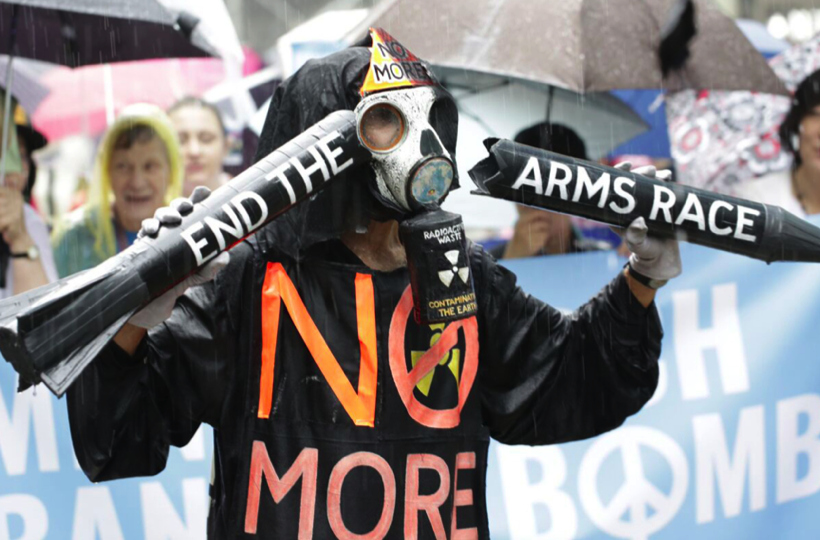When the Treaty on the Prohibition of Nuclear Weapons – TPNW, the treaty that immediately bans the atomic weapon for signatories, was approved by the United Nations General Assembly on July 7, 2017, the nuclear club countries (the United States, Russia, China, Britain, and France – authorized by the NPT Non-Proliferation Treaty – and Israel, India, Pakistan, and North Korea – outside the NPT) did not even participate in the voting, nor did their allies, including Italy.
By Maurizio Simoncelli
Russia’s invasion of Ukraine and Putin’s threats of possible nuclear weapon use highlighted the validity of the concerns of the 122 countries that then wanted a new treaty that would not postpone nuclear disarmament indefinitely.
The 12 512 nuclear warheads, 90 percent of which are in the possession of the United States and Russia, are being modernized, and there is already an increase even in quantity (up 86 from January 2022).
Former Russian President Medvedev recently spoke of a probable nuclear apocalypse, echoing words Putin has repeatedly spoken since the beginning of the conflict. NATO’s Strategic Concept, approved last June 2022, continues to rely on nuclear weapons.
The nuclear threat, kept relatively under control during the Cold War thanks to a series of discussion tables and specific agreements, has for years been without any room for negotiation and communication. The Ukrainian conflict has only highlighted a situation of deterioration of international agreements in this sector, with agreements no longer renewed, [or being] denounced or suspended: just think of the Treaty on intermediate-range nuclear forces (1987), the Treaty on conventional armed forces in Europe ( 1990); then it is the Open Skies Treaty (1992), and today it is the New Start on strategic nuclear weapons recently suspended by Moscow.
The US denunciation of the Joint Comprehensive Plan of Action (JCPoA) in 2018 meant that Iran resumed increasing its uranium enrichment capacity, to make fissile material for a possible nuclear weapon.
All these spaces for confrontation and mutual control have been disappearing, leaving in their place only the possibility of flexing muscles, exercising even more risky power policies in the nuclear field, and renouncing the hypothesis of shared security.
The Disarmo Archive, which has been following the nuclear issue for over 40 years, believes it is important to pick up the thread of talks that have been interrupted for too long, because the result, as we can see, does not bode well. Italy, which hosts on its national territory 35 US nuclear bombs of the B61 type in Ghedi (BS) and Aviano (PN), has not signed the TPNW, but could still participate in the meetings of those countries that have signed and ratified it, signaling its willingness to seek a common solution to the nuclear threat that the NPT (Treaty on the Non-Proliferation of Nuclear Weapons) has so far not avoided.










